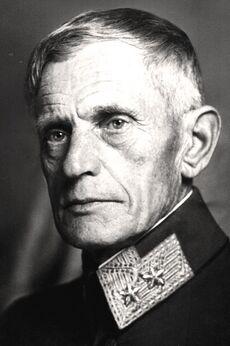1926 Ryccian general election (Pacifica)
| Template:Flagdeco | |||||||||||||||||||||||||||||||||||||||||
| |||||||||||||||||||||||||||||||||||||||||
All 1,370 seats to the Popular Assembly of the Republic 686 seats needed for a majority | |||||||||||||||||||||||||||||||||||||||||
|---|---|---|---|---|---|---|---|---|---|---|---|---|---|---|---|---|---|---|---|---|---|---|---|---|---|---|---|---|---|---|---|---|---|---|---|---|---|---|---|---|---|
| Turnout | 70.15% | ||||||||||||||||||||||||||||||||||||||||
| |||||||||||||||||||||||||||||||||||||||||
File:1926RycElection Results of the election. | |||||||||||||||||||||||||||||||||||||||||
| |||||||||||||||||||||||||||||||||||||||||
Background
After the establishment of the First Ryccian Republic, elections were called for October 9th, 1926. The revolutionary conflict itself had ended in 1925, and a constitutional convention was called immediately after the war's end. The Interim Ryccian Republican Government's Constituent Assembly produced a constitution by early 1926.
The democratic process in of itself was not unprecedented. From 1900, the republican side of the Democratic Revolution had been conducting limited elections for a Provisional Assembly, a body which had limited powers and mainly served as an advisory body for the revolutionaries. However, members of this assembly were effective in advocating for their constituents, as the Democratic Revolutionary Army wanted to demonstrate the superiority of a democratic system by actively listening to the concerns of the population under its control. The assembly's powers were gradually expanded as the republicans captured more territory and consolidated its control over the lands it had captured. By 1921, when its last elections were conducted, the Provisional Assembly had broad legislative powers, including partial control over the DRA's budget and regulations. Despite this, executive power remained with the DRA's military leadership.
Partisan politics were unprecedented, however. The DRA had restricted membership in the Provisional Assembly to "citizens loyal to the revolutionary cause", which in effect meant a ban on royalists and other anti-republican elements. To prevent this, as well as to preserve political stability as a wartime government, political parties, although not banned, were not allowed to formally organize themselves to run for these elections. Even so, informal organization by the communists meant that several "independents" also belonged to the Communist Party of Ryccia, and although they did not campaign under its banner, they often ran as avowed communists. The CPR's members won a few seats, mostly in urban constituencies, although rural representatives were not unheard of. As the CPR was aligned to the revolutionary cause and Sean Hoxe himself was a close friend of their leader, William Kasberg, the DRA tolerated its bending of electoral rules.
This election would be one of the most flawed in Ryccian history after 1925, as royalists were still banned from participating in the politics of the new Republic. At the time, this was seen as a necessary measure to prevent "counterrevolutionaries" from influencing the newly-established republican system and causing its overthrow. However, some independents were clever in their campaigning by promoting their royalist credentials without incurring the ire of the Republican authorities by deliberately avoiding explicit references to royalism, instead using slogans such as "preserve the historical stability of the country" and "continue the progress from ages past". Some royalists were still arrested despite their caution, as these tactics were difficult to successfully get away with as zealous Republic authorities used any legal reasoning to prosecute them.
Sean Hoxe, one of the main founders of the Committee of the Provisional Democratic Government in 1888, had formally led the revolutionary cause since 1890. Lionized and adored as the "Founder of the Republic", Hoxe was beloved by most of the population, including his non-royalist opposition. Historians generally agree that Hoxe was not power-hungry and genuinely wished to develop the nascent democratic experiment in the country, and he saw himself as one of the main architects of this new system that had to guide the country towards a "stable and healthy" democracy. Indeed, when he founded the Democratic Revolutionary Front, he insisted the new DRF had to win over voters "fairly" and arrested a few candidates that attempted to interfere with their elections with their local influence as former commanders in the war. He also purged party members who, in his eyes, engaged in "toxic" campaigning by "slandering" their opposition either locally or nationally. In one instance, he personally went to one constituency in what is now the State of Sudrissia to apologize to the ethnic minority population for the DRF candidate's xenophobic demonization of them to win over conservative ethnic Ryccian voters. The independent who ran in this constituency won his election, especially when Hoxe campaigned for him in the constituency for two days.
By mandating "civilized and orderly" partisan politics, Hoxe had set the precedent that a healthy democracy should avoid "negative" partisan infighting and instead promote "cordial" discussion and debate. This would have an unintended consequence no one saw at the time, however, as the military, who openly and fanatically defended his vision for the country until the early 2000s, would overthrow the government in the 1943 Ryccian coup d'etat, with one of the reasons being the DRF's negative electoral tactics as it gradually lost its dominance over the state after Hoxe's death. The two subsequent coups in 1969 and 1987 would be motivated by similar reasons, although partisan division would not be the only one.
Electoral system
Conduct
Results
| Party | Constituency | List | Seats | ± | |
|---|---|---|---|---|---|
| Democratic Revolutionary Front | 347 | 630 | 977 | New | |
| Communist Party of Ryccia | 19 | 52 | 71 | New | |
| Revolutionary Committee of the All-Ryccian People's Army | 0 | 3 | 3 | New | |
| Association of the Anti-Royalist Peasants of Paraluisa | 1 | 0 | 1 | New | |
| Independents | 318 | N/A | 318 | New | |
